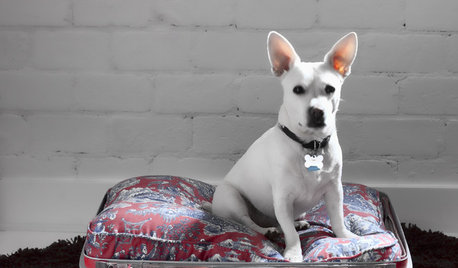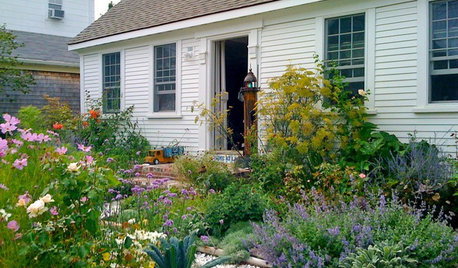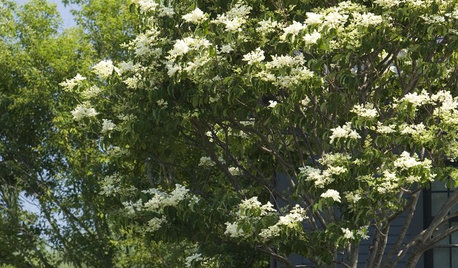compost - to pee or not to pee
sequoia_stiffy
16 years ago
Featured Answer
Sort by:Oldest
Comments (117)
petalpatsy
15 years agolast modified: 9 years agocurtludwig
15 years agolast modified: 9 years agoRelated Professionals
Cary Landscape Architects & Landscape Designers · Erie Landscape Architects & Landscape Designers · Frisco Landscape Contractors · Coeur d'Alene Landscape Contractors · Galveston Landscape Contractors · Hayden Landscape Contractors · Palos Verdes Estates Landscape Contractors · Pompton Lakes Landscape Contractors · White Bear Lake Landscape Contractors · Braintree Decks, Patios & Outdoor Enclosures · Kalamazoo Decks, Patios & Outdoor Enclosures · Medford Decks, Patios & Outdoor Enclosures · Oak Ridge Decks, Patios & Outdoor Enclosures · Salisbury Decks, Patios & Outdoor Enclosures · Verde Village Decks, Patios & Outdoor Enclosurespaulns
15 years agolast modified: 9 years agoptilda
14 years agolast modified: 9 years agotakadi
14 years agolast modified: 9 years agoavid_hiker
14 years agolast modified: 9 years agorj_hythloday
14 years agolast modified: 9 years agojoepyeweed
14 years agolast modified: 9 years agoidaho_gardener
14 years agolast modified: 9 years agoluckygal
14 years agolast modified: 9 years agoidaho_gardener
14 years agolast modified: 9 years agocalm1
14 years agolast modified: 9 years agogardenz4evr
14 years agolast modified: 9 years agojoepyeweed
14 years agolast modified: 9 years agoteequiltbarbie
14 years agolast modified: 9 years agogardenz4evr
14 years agolast modified: 9 years agogumbooter
14 years agolast modified: 9 years agosunnybunny
14 years agolast modified: 9 years agorond1
14 years agolast modified: 9 years agorandy_coyote
14 years agolast modified: 9 years agor_skirt
14 years agolast modified: 9 years agopetalpatsy
14 years agolast modified: 9 years agoblutarski
14 years agolast modified: 9 years agoPaul Gregory
7 years agotheparsley
7 years agolast modified: 7 years agotoxcrusadr
7 years agodaninthedirt (USDA 9a, HZ9, CentTX, Sunset z30, Cfa)
7 years agolast modified: 7 years agotheparsley
7 years agodaninthedirt (USDA 9a, HZ9, CentTX, Sunset z30, Cfa)
7 years agolast modified: 7 years agobcomplx
7 years agolast modified: 7 years agorgreen48
7 years agolast modified: 7 years agoPaul Gregory
7 years agodaninthedirt (USDA 9a, HZ9, CentTX, Sunset z30, Cfa)
7 years agolast modified: 7 years agotoxcrusadr
7 years agolast modified: 7 years agorgreen48
7 years agolast modified: 7 years agoavgusta_gw
7 years agoalbert_135 39.17°N 119.76°W 4695ft.
7 years agoavgusta_gw
7 years agotheparsley
7 years agobcomplx
7 years agotoxcrusadr
7 years ago
Related Stories

GARDENING GUIDESGet on a Composting Kick (Hello, Free Fertilizer!)
Quit shelling out for pricey substitutes that aren’t even as good. Here’s how to give your soil the best while lightening your trash load
Full Story
HOUZZ TV FAVORITESCandy-Colored Collections Wow in Manhattan
Pez dispensers, cheerful toys and pop culture memorabilia bring personality to this apartment
Full Story
CRAFTSDIY Project: Vintage Suitcase Dog Bed
Save Your Own Furniture With a Comfy Dog Bed You Can Make This Weekend
Full Story
GARDENING GUIDESVegetables and Flowers Mix in Beautiful Edible Gardens
Ornamentals, meet your edible garden mates. We know you'll get along just beautifully
Full Story
GARDENING GUIDESNo-Regret Plants: 5 Questions Smart Shoppers Ask
Quit wasting money and time at the garden center. This checklist will ensure that the plants you're eyeing will stick around in your yard
Full Story
BATHROOM DESIGNShould You Install a Urinal at Home?
Wall-mounted pit stops are handy in more than just man caves — and they can look better than you might think
Full Story
TINY HOUSESHouzz Tour: A Custom-Made Tiny House for Skiing and Hiking
Ethan Waldman quit his job, left his large house and spent $42,000 to build a 200-square-foot home that costs him $100 a month to live in
Full Story
CABINSRoom of the Day: Timber-Frame Cabin Inspires Couple’s Creative Pursuits
This work studio, built in a simple vernacular architectural style, sits near a couple's rural home in the Berkshire mountains
Full Story







Ed Beller